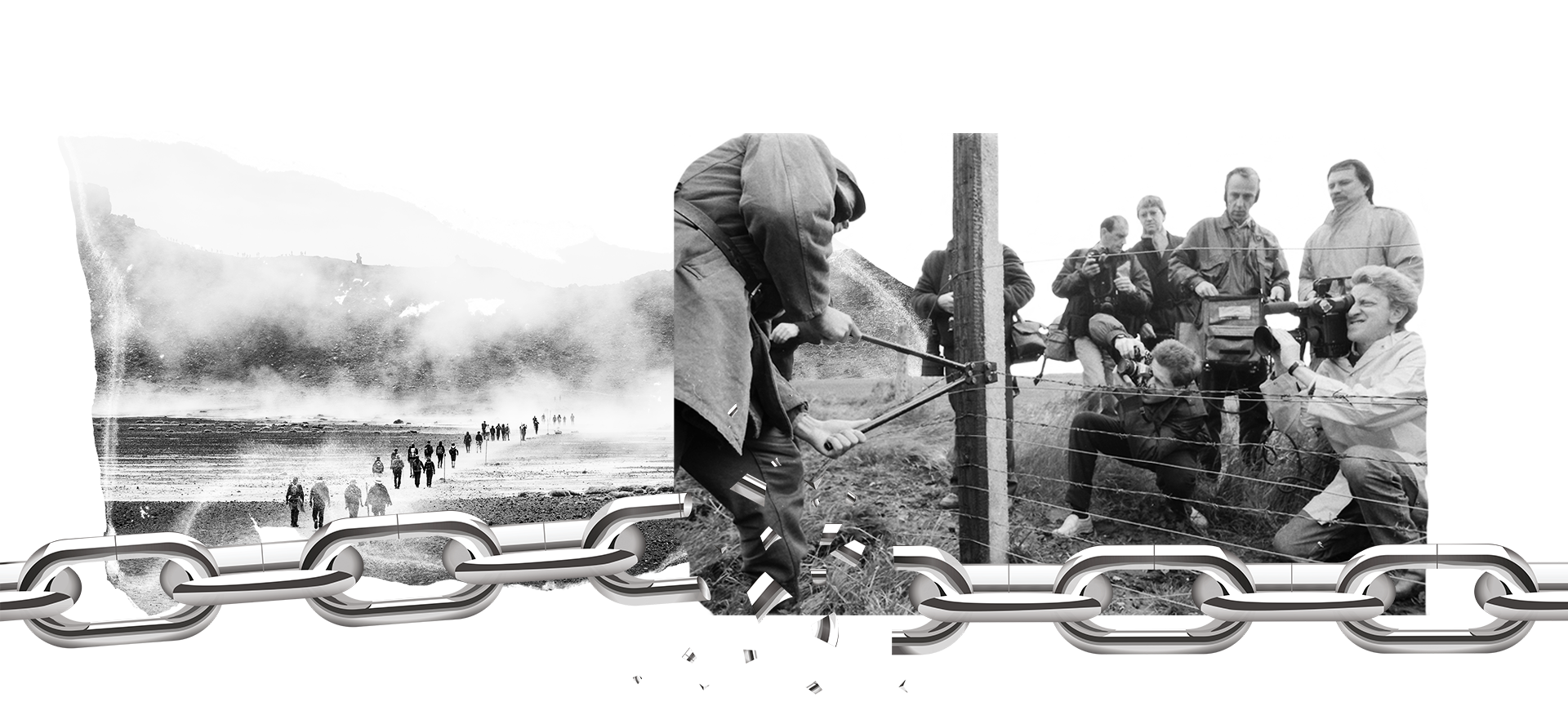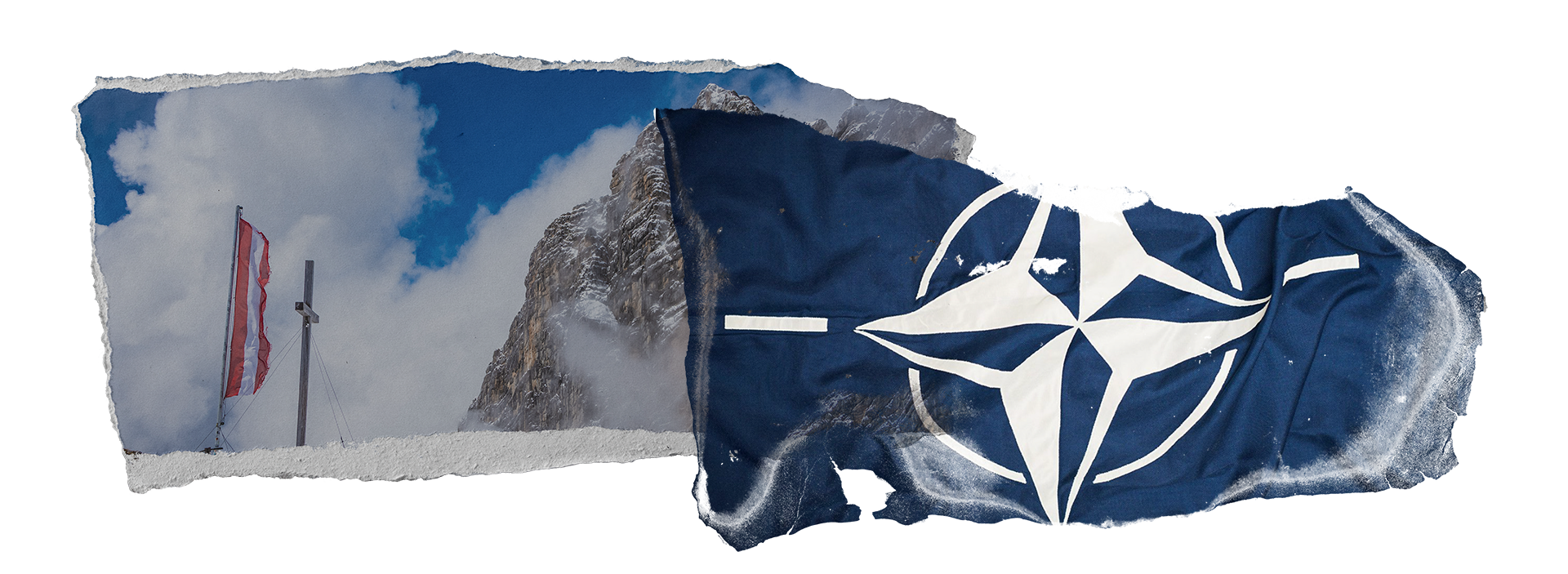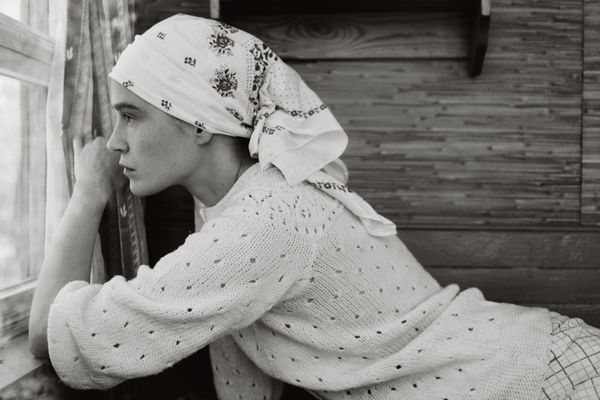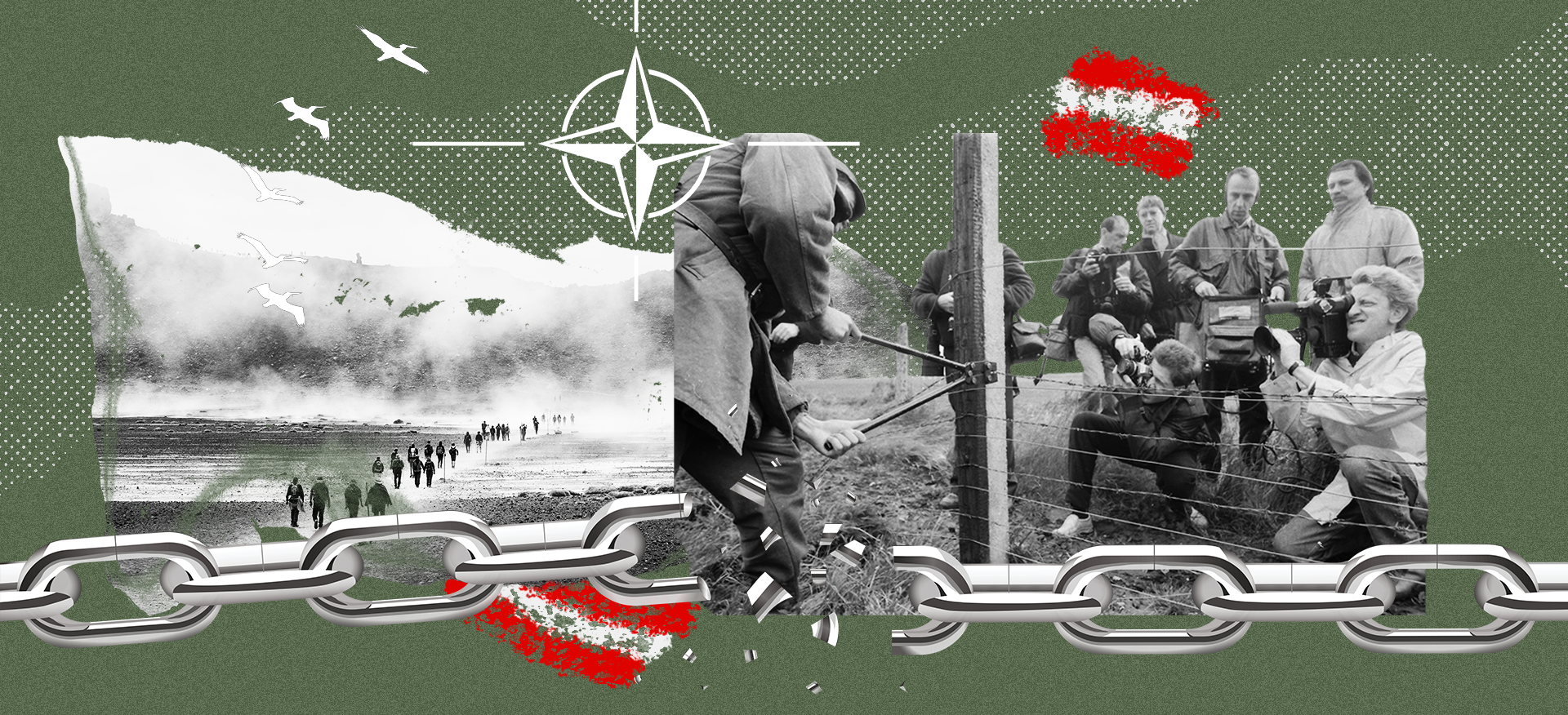Discussion on Ukraine’s NATO membership, sacrifices, and freedom, and the failure to meet NATO’s 2008 momentum. An international roundtable with a wide range of thoughts.
“In 2014, I published a paper that argued that Ukraine should follow the Austrian model of neutrality in order to avoid war”, said Heinz Gärtner, highlighting that Austria had been adopting military independence since 1955 because it wanted to avoid Soviet occupation, but Central Europe had fallen behind the Iron Curtain. Initially, it was not clear where Vienna would be placed, Churchill had long intended to subject the Austrian capital to Soviet occupation along with Berlin, but in the end, this did not happen. “If you look at the map today, it is clear that Ukraine’s neutrality no longer exists, and Sweden and Finland have joined NATO, giving up neutrality,” said Gärtner, who believes a new Iron Curtain is descending.
The issues of illegal immigration and border control are particularly important for Austria, which is part of the Schengen Area. Austria and other EU member states are concerned about illegal immigrants crossing Romanian and Bulgarian borders and fear that their admission to the Schengen Area would increase the risk. The fight against illegal immigration and border control policies require close cooperation between EU member states, and Austria is working to ensure that Romania and Bulgaria are ready to face such challenges before joining the area— however, it does not currently approve the accession of these two countries. It is difficult to provide accurate figures on the percentage of illegal immigrants arriving in Austria, as their numbers are constantly changing as well as their transit routes, but migration through the Balkans has been significant in recent years. As is known, in 2015, the European Union was flooded by a huge wave of migration, mainly from Syria, Afghanistan, and Iraq, arriving through the Balkans. However, the number of illegal border crossings to Austria and other Western European countries has dropped significantly following the EU–Turkey agreement that reduced migration via Turkey. The exact number and proportion of illegal immigrants arriving in Austria depend on the evolution of migration flows and the border control measures taken by each country, and Vienna says that Romanian and Bulgarian efforts are proactive but far from enough.

According to Gärtner, the reason behind Austria’s veto is that 40% of illegal refugees enter Austria via the Balkan route and the risk of Romania and Bulgaria joining is too high. This could also drive a wedge between the allied member states, but as Gärtner pointed out, it is very important in Central Europe to maintain a common cultural value, cooperation, and communication.
Neli Kirilova highlighted a clear, yet important point: defense cooperation between NATO and the EU is growing stronger, as the EU is currently developing its defense policy together with NATO. On the obstacle of Schengen accession, she echoed Gärtner’s words, confirming that the refugee crisis in Bulgaria remains serious and that the Bulgarian–Greek border is not secured.
According to Andrey Makarychev, the primary field of war is language: the Estonian leadership calls Russia’s actions aggression, violation of territorial integrity, and war crimes, and is willing to take effective legal action to this end. Estonia was the first country to initiate the blocking of Russian assets, and it supported Ukraine with 2% of its GDP. “In Estonia’s case, neutrality is not working, but the security situation is stable. At the same time, we have to consider what would happen if Estonia were no longer part of NATO today—it would certainly be Russia’s next victim,” said the Russian-born expert, who also added that Estonia’s leadership does not want to support the face-saving of Putin and envisages a European security space without Russia. This policy was confirmed by the recent parliamentary elections, with a clear response from Estonian society, which is willing to pay for security and freedom despite high inflation. Back in March, incumbent Prime Minister Kaja Kallas’s center-right liberal Reform Party won the parliamentary elections in Estonia. According to the Reform Party’s election program, the victory for the prime minister’s party means that Tallinn will continue its transition to green energy and continue to accept refugees from Ukraine, supporting a country that has been the victim of Russian aggression. During the campaign, the party also pledged to increase defense spending to 3% of GDP and cut taxes on businesses. The prime minister also indicated that the incoming Estonian government could keep up the pressure on Russia. “We need to invest in our security. Our aggressive neighbor has not disappeared and will not disappear, so we have to take steps,” said Kaja Kallas.

Ukrainian–NATO relations go back a long way, but the question of NATO membership has always been a sensitive and controversial issue in Ukraine. Since the early 1990s, Ukraine has developed active relations with NATO and joined the Partnership for Peace in 1994. In 1997, the Charter on Distinctive Partnership between Ukraine and NATO was signed, followed by the NATO–Ukraine Action Plan in 2002, which aimed to deepen political, military, and economic cooperation. This was followed in 2008 when, according to Gärtner, giving Ukraine the prospect of NATO membership was dangerous because it gave Putin a weapon with consequences that are known today. In 2008, the Ukrainian Parliament voted in favor of Ukraine’s application for NATO membership. The vote was close: the parliament passed the decision by 233 votes to 226. At the NATO Summit in Bucharest in April 2008, NATO decided not to offer membership to Georgia and Ukraine yet; NATO Secretary General Jaap de Hoop Scheffer nevertheless declared that Georgia and Ukraine could become members in due course. NATO expansion was reportedly met with resistance from France and Germany, and less than four months later, in August 2008, Russia invaded Georgia.
Makarychev emphasized that Estonia had already officially declared Russia as the main threat, which is why the country also supports Ukraine’s NATO membership. “At the same time, Kyiv should be aware that Ukraine has to meet certain conditions for accession; for example, ending the war is a must,” the expert said.
“If and when Ukraine becomes a NATO member, more countries may join, especially from the Balkans,” Kirilova said, pointing out that this could create an imbalance in NATO, as Turkey also plays both sides and uses the alliance to implement its regional desires and interests, which is why it is very important to create a balance without influence within NATO.

From the runways to the streets #1 | A year in fashion

“I want to explain to the world what Ukraine is” | Interview with Nadiia Shapoval, chief curator of i am u are










